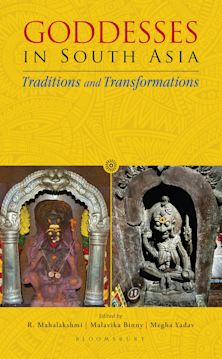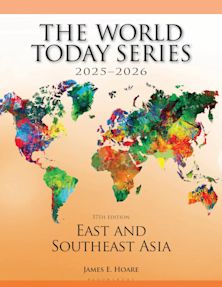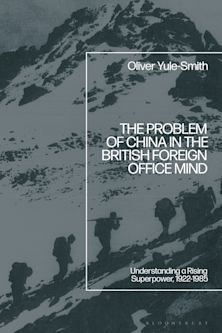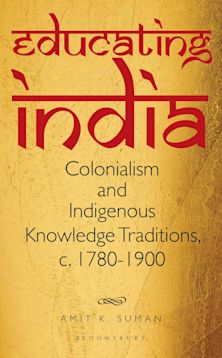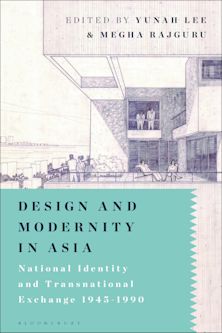- Home
- ACADEMIC
- History
- Asian History
- What Is Moderate Islam?
What Is Moderate Islam?
Richard L. Benkin (Anthology Editor) , Navras Jaat Aafreedi (Contributor) , Anonymous (Contributor) , Aziz Baloch (Contributor) , Meerain Baloch (Contributor) , Richard L. Benkin (Contributor) , Naseer Dashti (Contributor) , Umar Duad Khattak (Contributor) , Sunil Kukreja (Contributor) , Daniel Pipes (Contributor) , Amitabh Tripathi (Contributor) , Kulbhushan Warikoo (Contributor)
What Is Moderate Islam?
Richard L. Benkin (Anthology Editor) , Navras Jaat Aafreedi (Contributor) , Anonymous (Contributor) , Aziz Baloch (Contributor) , Meerain Baloch (Contributor) , Richard L. Benkin (Contributor) , Naseer Dashti (Contributor) , Umar Duad Khattak (Contributor) , Sunil Kukreja (Contributor) , Daniel Pipes (Contributor) , Amitabh Tripathi (Contributor) , Kulbhushan Warikoo (Contributor)
You must sign in to add this item to your wishlist. Please sign in or create an account
Description
Radical Islam is a major affliction of the contemporary world. Each year, radical Islamists carry out terrorist attacks that result in a massive death toll, almost all involving noncombatants and innocents. Estimates of how many Muslims could be considered followers of radical Islam vary widely, and there are few guides to help determine moderates versus radicals. Observers often sit at the extremes, either seeing all Muslims as open or closeted jihadis or recoiling from any attempt to link Islam with international terror. Both positions are overly simplistic, and the lack of rational principles to absolve the innocent and identify the accomplices of terror has led to governments and individuals mistakenly accepting jihadis as moderate. What is Moderate Islam? brings together an array of scholars—Muslims and non-Muslims—to provide this missing insight. This wide-ranging collection examines the relationship among Islam, civil society, and the state. The contributors—including both Muslims and non-Muslims—investigate how radical Islamists can be distinguished from moderate Muslims, analyze the potential for moderate Islamic governance, and challenge monolithic conceptions of Islam.
Table of Contents
Chapter 1: Smoking out Islamists, Daniel Pipes
Chapter 2: Islamist Extremism: Threat to World Peace, Kulbhushan Warikoo
Chapter 3: Wither Moderate Islam: Malaysian Style, Sunil Kukreja
Chapter 4: Is There a Non-Radical Islam?, Naseer Dashti
Chapter 5: An Islam That Rejects Islamists: The Case of the Baloch, Meerain Baloch
Chapter 6: The Debate about Radical versus Non-Radical Islam, Amitabh Tripathi
Chapter 7: Moderate Islam Is an Illusion—at Least for Now, Umar Duad Khattak
Chapter 8: Being Pakhtun: Interview with a Muslim Female Living in Exile, Richard L. Benkin and Anonymous
Chapter 9: Balochistan to the Road of Independence, Aziz Baloch
Chapter 10: South Asian Muslim Attitudes towards Jews, Israel, and Zionism, Navras Jaat Aafreedi
Chapter 11: The Myth of Bangladesh as a Moderate Muslim Nation, Richard L. Benkin
Product details
| Published | 12 Apr 2017 |
|---|---|
| Format | Ebook (Epub & Mobi) |
| Edition | 1st |
| Extent | 252 |
| ISBN | 9781498537421 |
| Imprint | Lexington Books |
| Illustrations | 1 Map, 2 Tables |
| Publisher | Bloomsbury Publishing |
About the contributors
Reviews
-
This collection was far too rich to be pressed into a brief review. This book needs to be read in depth, especially by those wanting to know more about specific local problems experienced in certain parts of South Asia today, specifically Balochistan, Afghanistan and the Pashtun region, and Pakistan and Bangladesh. Readers should expect to find quite disturbing yet insightful material, presented from various insider perspectives, often in the words of people with direct experience of violence.
South Asia Research
-
Richard L. Benkin has put forth a solid collection of essays on one of the most critical topics of the day—distinguishing between moderate Muslims and Islamists. With the growing threat of Islamist groups in the Middle East and their affiliates in the West, the issue of identifying moderates necessitates a clear and guided answer, which is detailed throughout these essays. This book is a must read for anyone seeking to understand the complexities and nuances of the Muslim world at large.
Asaf Romirowsky, Middle East Forum
-
Is Islam at its core ‘moderate’ or ‘radical’? Can the ‘moderates’ ultimately win out over the ‘extremists’ in a battle for the soul of Islam? How does ‘radical Islam’ gain a foothold in Muslim communities that have lived in peace with their non-Muslim neighbors? In this eye-opening book, Richard L. Benkin and an array of South Asian Muslim scholars confront these questions and more. The emphasis on Pakistan and Bangladesh creates a fascinating paradigm with numerous applications to study of the larger Islamic world. Essential reading for all those—especially policymakers—who are baffled as to how and why Islam’s jihad imperative has made, after a long period of relative (but not absolute) quiescence, such an unexpected and spectacular reappearance in the modern world.
Robert Spencer, Jihad Watch













